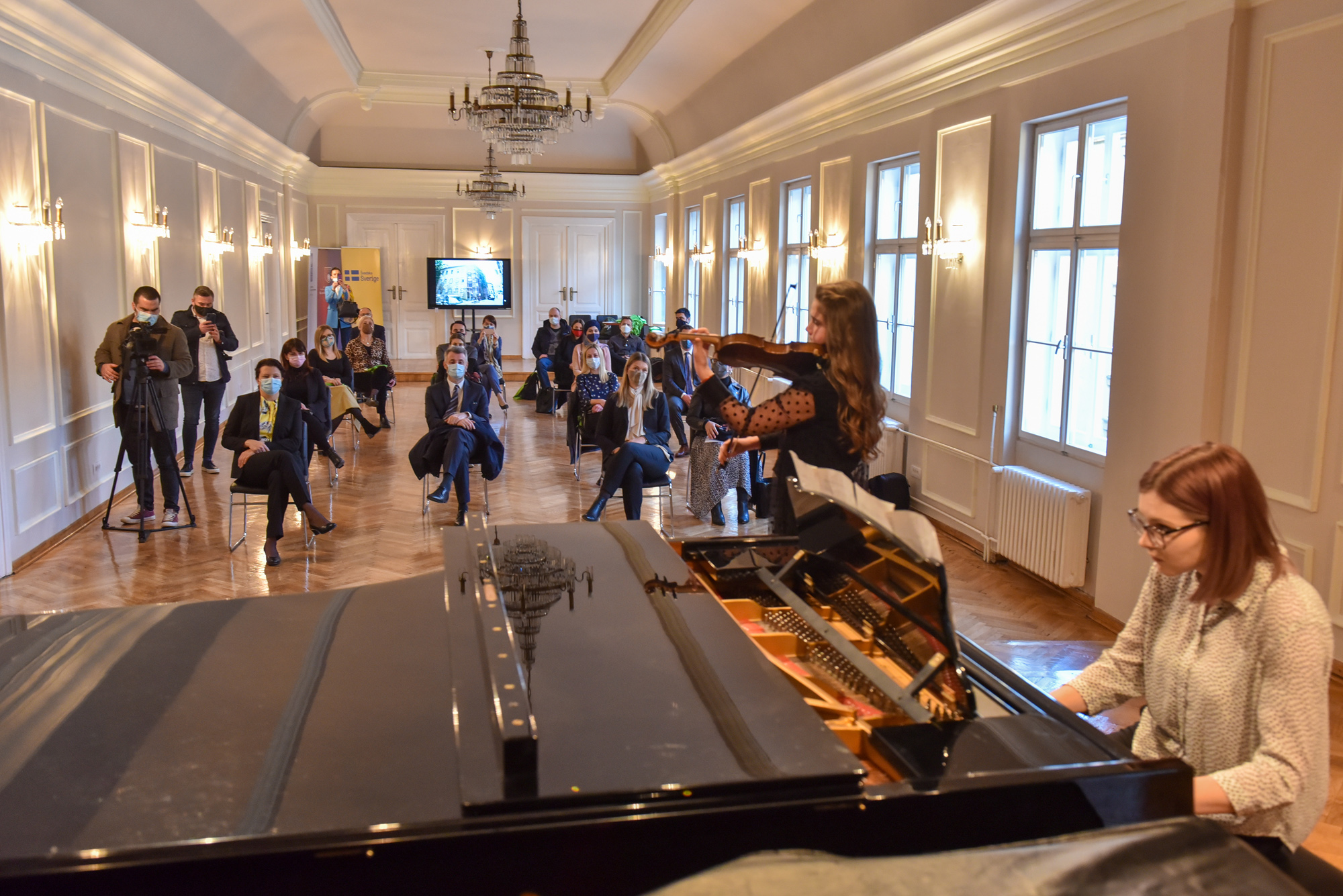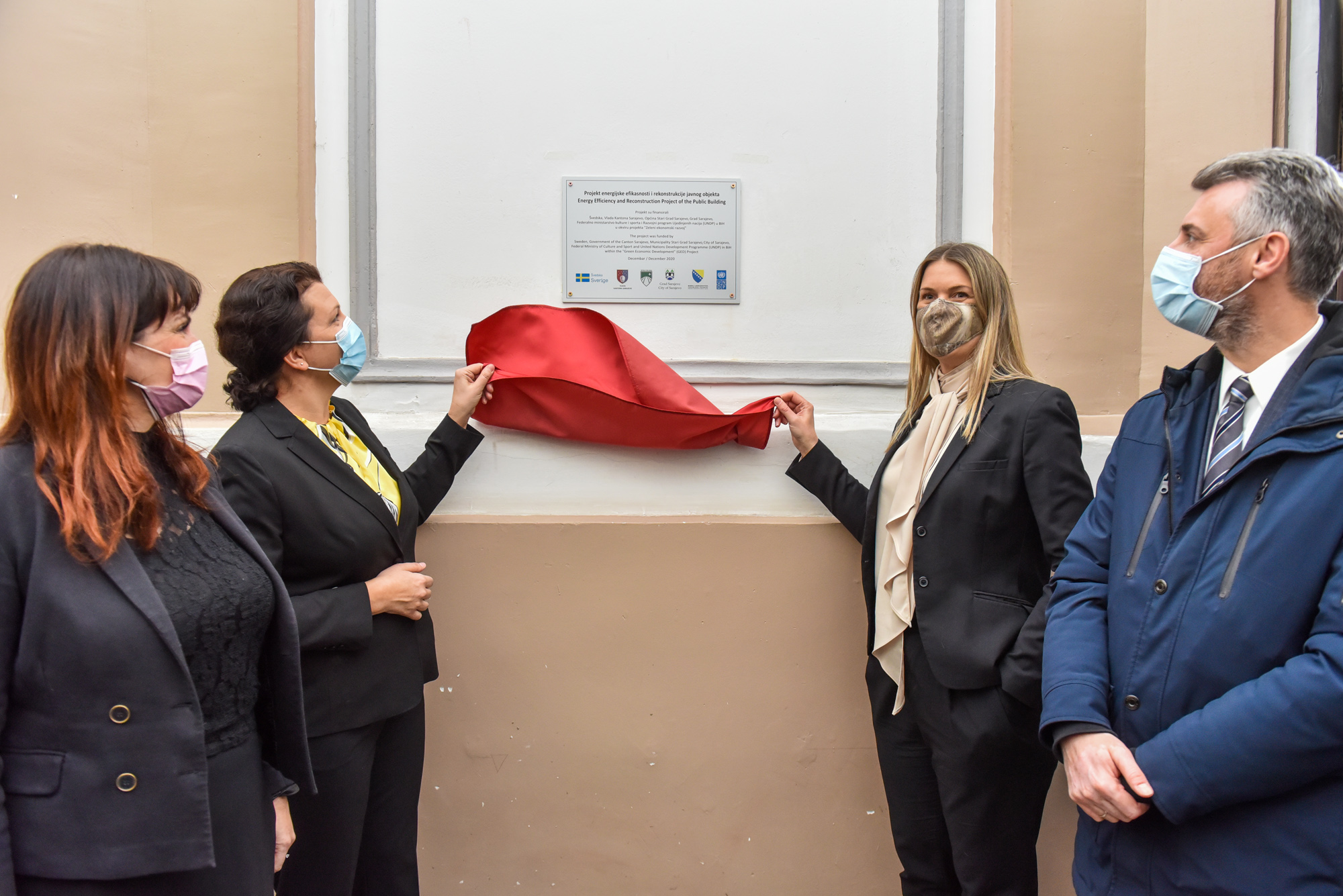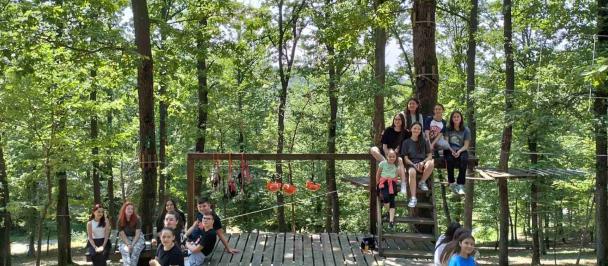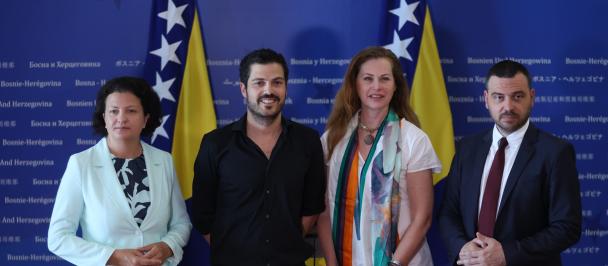Muzička škola je utopljena u okviru projekta Zeleni ekonomski razvoj koji finansira Švedska
Within the Let’s talk about air campaign led by the Embassy of Sweden in BiH, a ceremony was held at the Music School/Academy Sarajevo to mark the completion of energy retrofit of this public building. The plaque was revealed by Johanna Strömquist, Ambassador of Sweden to BiH, Edin Forto, Prime Minister of Canton Sarajevo, Tatjana Romanic, Director of Music Secondary School and Steliana Nedera, UNDP Resident Representative in BiH.
Public buildings in BiH consume three times more energy than it is stipulated by European Union standards. With energy retrofit, energy use in a building can be reduced on average by about 60% which also contributes to better air quality. Air pollution has considerable economic impacts, reducing life expectancy, increasing medical costs, and reducing productivity across various economic sectors states the European Environmental Agency.
“This is one of the 64 public buildings in Sarajevo which have been retrofitted for improved energy efficiency with support from Sweden in partnership with Sarajevo Canton and UNDP. One building may not make a huge difference but increasing the number of energy-efficiency retrofitted buildings by working continuously on reducing the energy consumption and air pollution can make a big difference. I am also happy that 860 students will continue their education in a more comfortable setting.”said Johanna Strömquist, Ambassador of Sweden to BiH
Built at the end of the 19th century, the building which was protected as a national monument of Bosnia and Herzegovina, in recent years was in a bad shape, in wintertime was too cold for students, and was dangerous for passers-by because of facade pieces falling off. Energy retrofit of Music School/Academy included replacing the exterior joinery, reconstruction of façade, reconstruction of the roof and construction of new gas boiler room.
Energy efficiency measures worth BAM 700,000 were realized within the Green Economic Development (GED) Project, thanks to funds provided by Sweden and Ministry of Spatial Planning, Construction and Environmental Protection of Canton Sarajevo each contributing 40% while the remaining amount was provided by Municipality of Stari Grad Sarajevo, City of Sarajevo and Federal Ministry of Sport and Culture. United Nations Development Program (UNDP) implemented energy efficiency measures.
„This is the model we want to apply. On similar way, with adjusted financial model the Canton will conduct energy retrofit of 40 public buildings, most of them educational institutions – kindergartens, primary and secondary schools, faculties, students residences. That will be the project worth over 20 million KM” underlined Edin Forto, Prime Minister of Canton Sarajevo.
More than 1,000 pupils, students, teachers, parents, and other workers go daily into this building. „This is important step and significant investment that will contribute to better results and will provide an opportunity to young people to study in great indoor conditions“ said Tatjana Romanic, Director of Music Secondary School.
„Over the last five years, with support of Sweden, Canton Sarajevo and municipalities energy efficiency measures were implemented on 64 public buildings, energy consumption is reduced by 59% as well as CO2 emission reduced by 4,1 k tons per year“ stated Steliana Nedera, UNDP Resident Representative in BiH. Nedera also said that tackling climate change is one of priorities for 2021.
The GED project, funded by Sweden and implemented by the UNDP in partnership domestic authorities, aims to facilitate favourable conditions for investments in energy efficiency projects, increase the number of green jobs, as well as to contribute to environmental protection and economic development of Bosnia and Herzegovina.

 Locations
Locations





